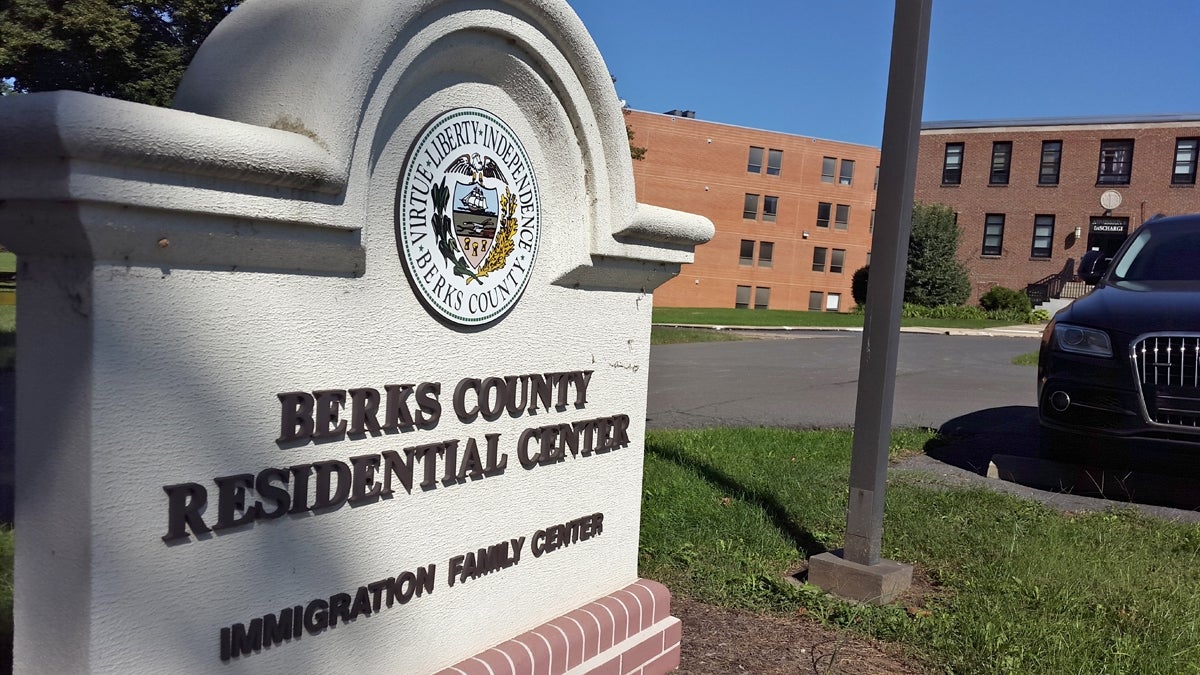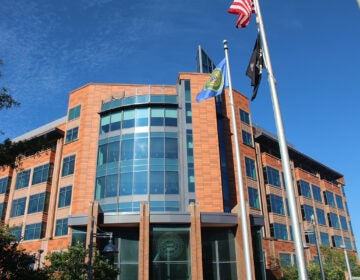After immigration judge frees kids from 22-month detention, ICE fights to bring them back
Listen 2:38
Berks County Residential Center. Oct. 6, 2016. (Laura Benshoff/WHYY)
On a video-conferencing screen at an immigration court in York County Prison, a 4-year-old boy appears, sitting in a white plastic chair next to his mother.
Wearing a suit, he colors a piece of paper intently, while attorneys in a room 50 miles away argue over his case. He can’t be there in person, because he and his mother are detained in the Berks Family Residential Center in Pennsylvania.
Asked at the end of the hearing if he has anything to bring to the judge’s attention, he says, “Yo quiero me ir con mi mamá.”
“I want to go with my mother.”
On Thursday, Judge Kuyomars Golparvar released the boy, who will turn 5 next month, and his mother, along with a 16-year-old and that minor’s mom. All fled violence in Central America and asked that their names not be used.
Two years of litigation and pressure are paying off for these and other immigrant families held for more than 22 months at the Berks center. Since 2014, dozens of families have been detained at the center, drawing protests from church groups and several calls from Democratic senators to release them.
Under President Obama, the U.S. expanded its use of family immigrant detention in response to an influx of children and single parents from Central America. The Berks center is the oldest of three family immigrant detention centers in the country.
Most recently, five women whose children qualified for a Special Immigrant Juvenile Status visa have been held for nearly two years.
Immigration judges in York have now released four of these families — and the fifth has a hearing next week. But the U.S. Immigration and Customs Enforcement agency is fighting for the right to put them back in detention.
Immigration attorneys representing the families argued that a federal court decision in July gives children at Berks the right to a bond hearing before an immigration judge. So far, judges in Pennsylvania immigration courts have agreed and released the minors with their parents.
However, ICE immediately appealed the release of families who had been held at Berks to the Board of Immigration Appeals, a panel of judges that works for the Department of Justice. The board granted ICE an emergency stay, meaning children and their parents who were let go could wind up back in the detention center until the appeal is decided.
If that were to happen, “I think that it would destroy them emotionally, the kids will be damaged for the rest of their lives,” said Bridget Cambria, one of their attorneys. All four children have a path to a green card through their special status, although that law does not grant any status to their mothers.
Officials with the federal office declined to comment on pending litigation. In immigration court, the ICE attorney argued that, under federal immigration law, the judges who freed the families don’t have the jurisdiction — or the right — to make that decision.
These suits are happening at a time when the Berks Family Residential Center seems to be reverting to the way it operated before 2014 — as processing center more than a detention center.
“There’s still long-term families, mostly six months and under,” said Cambria. But, “we find more of the people are passing [asylum interviews] and leaving.”
WHYY is your source for fact-based, in-depth journalism and information. As a nonprofit organization, we rely on financial support from readers like you. Please give today.




